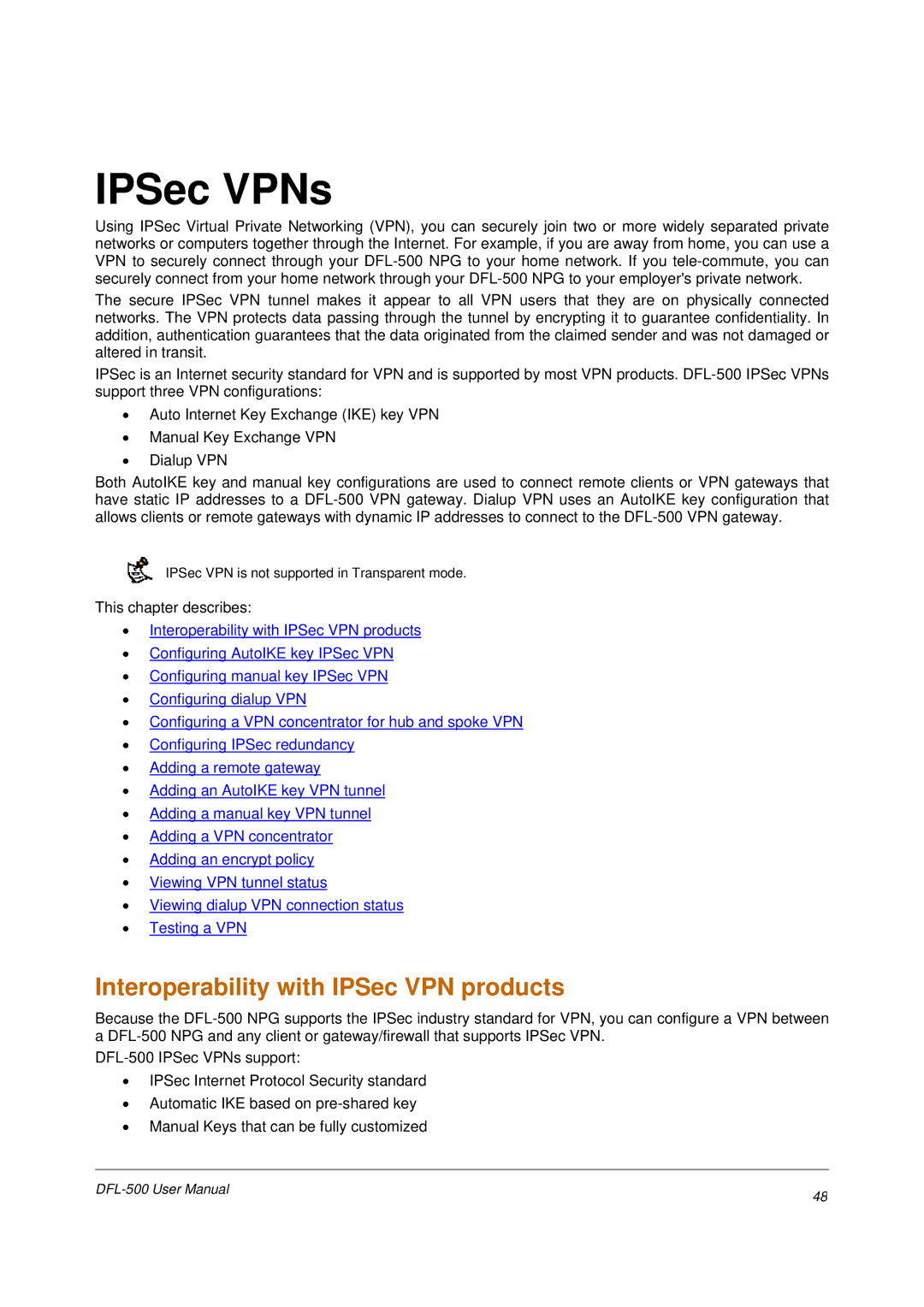
IPSec VPNs
Using IPSec Virtual Private Networking (VPN), you can securely join two or more widely separated private networks or computers together through the Internet. For example, if you are away from home, you can use a VPN to securely connect through your
The secure IPSec VPN tunnel makes it appear to all VPN users that they are on physically connected networks. The VPN protects data passing through the tunnel by encrypting it to guarantee confidentiality. In addition, authentication guarantees that the data originated from the claimed sender and was not damaged or altered in transit.
IPSec is an Internet security standard for VPN and is supported by most VPN products.
•Auto Internet Key Exchange (IKE) key VPN
•Manual Key Exchange VPN
•Dialup VPN
Both AutoIKE key and manual key configurations are used to connect remote clients or VPN gateways that have static IP addresses to a
IPSec VPN is not supported in Transparent mode.
This chapter describes:
•Interoperability with IPSec VPN products
•Configuring AutoIKE key IPSec VPN
•Configuring manual key IPSec VPN
•Configuring dialup VPN
•Configuring a VPN concentrator for hub and spoke VPN
•Configuring IPSec redundancy
•Adding a remote gateway
•Adding an AutoIKE key VPN tunnel
•Adding a manual key VPN tunnel
•Adding a VPN concentrator
•Adding an encrypt policy
•Viewing VPN tunnel status
•Viewing dialup VPN connection status
•Testing a VPN
Interoperability with IPSec VPN products
Because the
•IPSec Internet Protocol Security standard
•Automatic IKE based on
•Manual Keys that can be fully customized
48 | |
|
